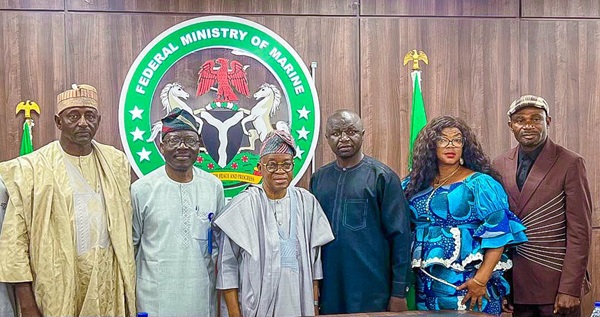
The Minister of Marine and Blue Economy, Adegboyega Oyetola, has pledged to end Nigeria’s reliance on fish importation by aggressively scaling up local fish production through strategic interventions and stakeholder collaboration.
Speaking on Wednesday at a high-level consultative meeting with fisheries cooperative groups in Abuja, Oyetola outlined a bold roadmap to transform the fisheries and aquaculture sector into a major contributor to food security, job creation and economic diversification.
“Nigeria must chart a new course toward self-sufficiency in fish production,” he declared. “The Federal Government is fully committed to repositioning the sector through targeted policy interventions, technical support and access to finance.”
The event, hosted by the Federal Ministry of Marine and Blue Economy, convened leaders and representatives of key industry associations including the Fisheries Cooperative Federation of Nigeria (FCFN), Tilapia Aquaculture Developers Association of Nigeria (TADAN), Catfish Farmers Association of Nigeria (CAFAN), Women in Fish Farming and Aquaculture and the Practicing Farmers Association of Nigeria.
Oyetola emphasised that enhancing domestic fish production is not just an agricultural imperative but also a national economic strategy. He revealed that the Ministry is working on multiple initiatives to support women and youth in aquaculture, including targeted start-up grants and empowerment schemes.
“This drive aligns with President Bola Ahmed Tinubu’s ‘Renewed Hope’ agenda, which prioritises youth engagement, food security, and inclusive economic growth,” he said.
Highlighting the sector’s challenges, participants raised concerns about overfishing, environmental degradation, limited access to affordable finance, post-harvest losses, lack of cold chain infrastructure, poor transportation and market linkages, low youth participation, multiple taxation by local authorities and the soaring cost of imported fish feed.
In response, Oyetola assured the gathering that the ministry has commenced dialogue with both domestic and international partners to tackle these constraints. He disclosed ongoing discussions with the World Bank to secure financial support for fish farmers, as well as plans to collaborate with the Nigerian Agricultural Insurance Corporation (NAIC) to develop tailored, affordable insurance packages for operators in the sector.
He also announced plans to partner with the Federal Ministry of Water Resources to replicate the successful aquaculture model piloted at the Oyan Dam across other parts of the country. This integrated approach, he said, will form part of the Ministry’s broader strategy of leveraging inter-ministerial cooperation to unlock the full potential of Nigeria’s aquatic economy.
“This meeting is not the end — it is the beginning of a continuous and transformative engagement with stakeholders,” he said, describing the forum as a platform for co-creating lasting solutions.
Earlier in his welcome address, permanent secretary of the ministry, Olufemi Oloruntol said the event was a follow-up to commitments made by the minister during the ministry’s second-quarter citizens and stakeholders engagement held in Lagos on July 3. He reaffirmed the government’s readiness to deepen partnerships with cooperative societies to drive growth and resilience in the sector.
Also speaking, the director of fisheries and aquaculture, Wellington Omoragbon underscored the importance of strengthening institutional frameworks and adopting enterprise-driven models to enhance productivity and unlock investment opportunities.
Participants applauded the consultative initiative, describing it as a much-needed step toward sustainable reform. Many expressed optimism that the renewed government interest, coupled with concrete actions, would reverse the sector’s decline and position Nigeria as a net exporter of fish soon.
With Nigeria spending over $1 billion annually on fish imports, stakeholders agreed that urgent reforms and scaled-up local production are essential to safeguarding food security, reducing unemployment and tapping into the economic potential of the blue economy.

